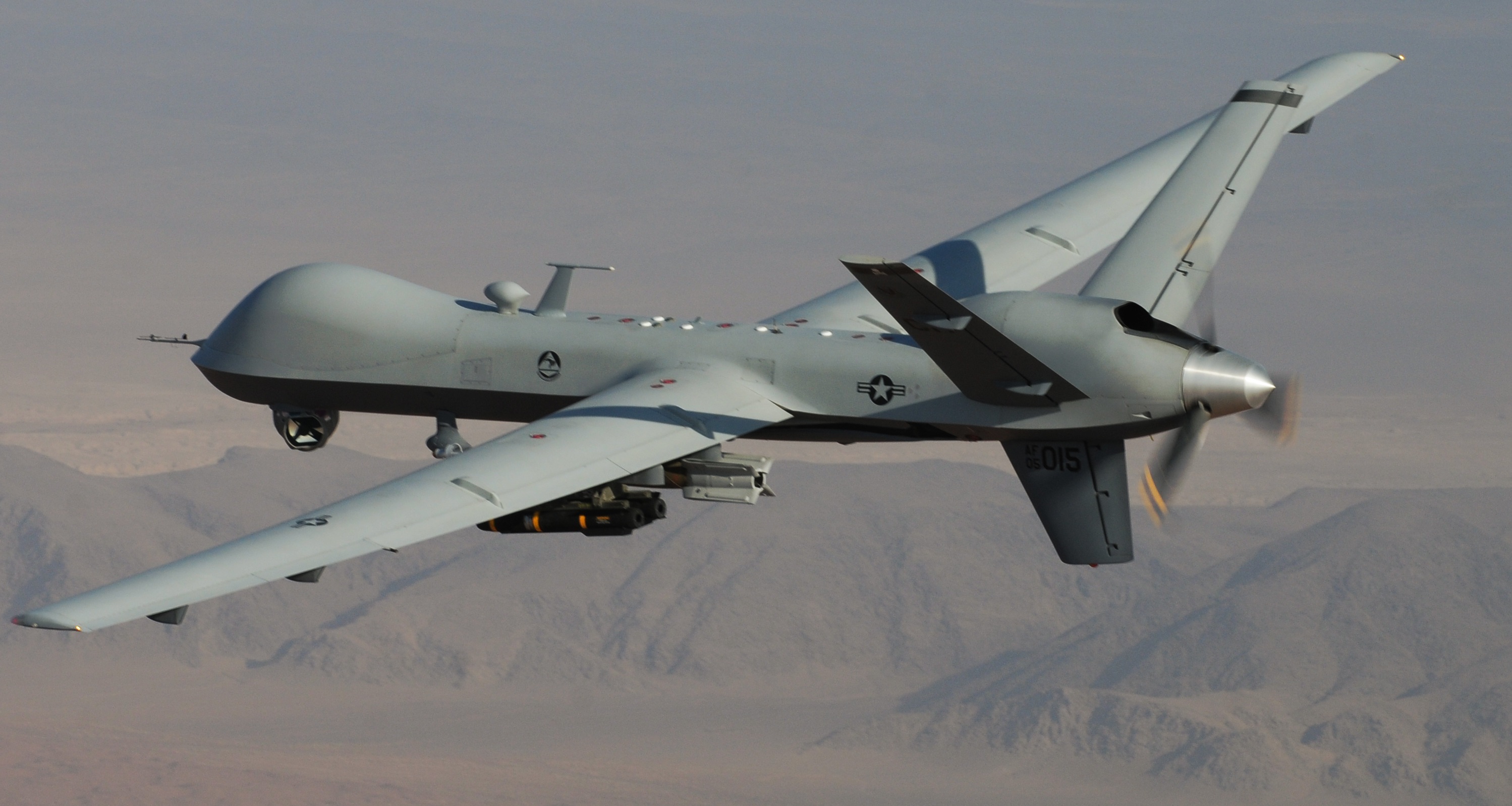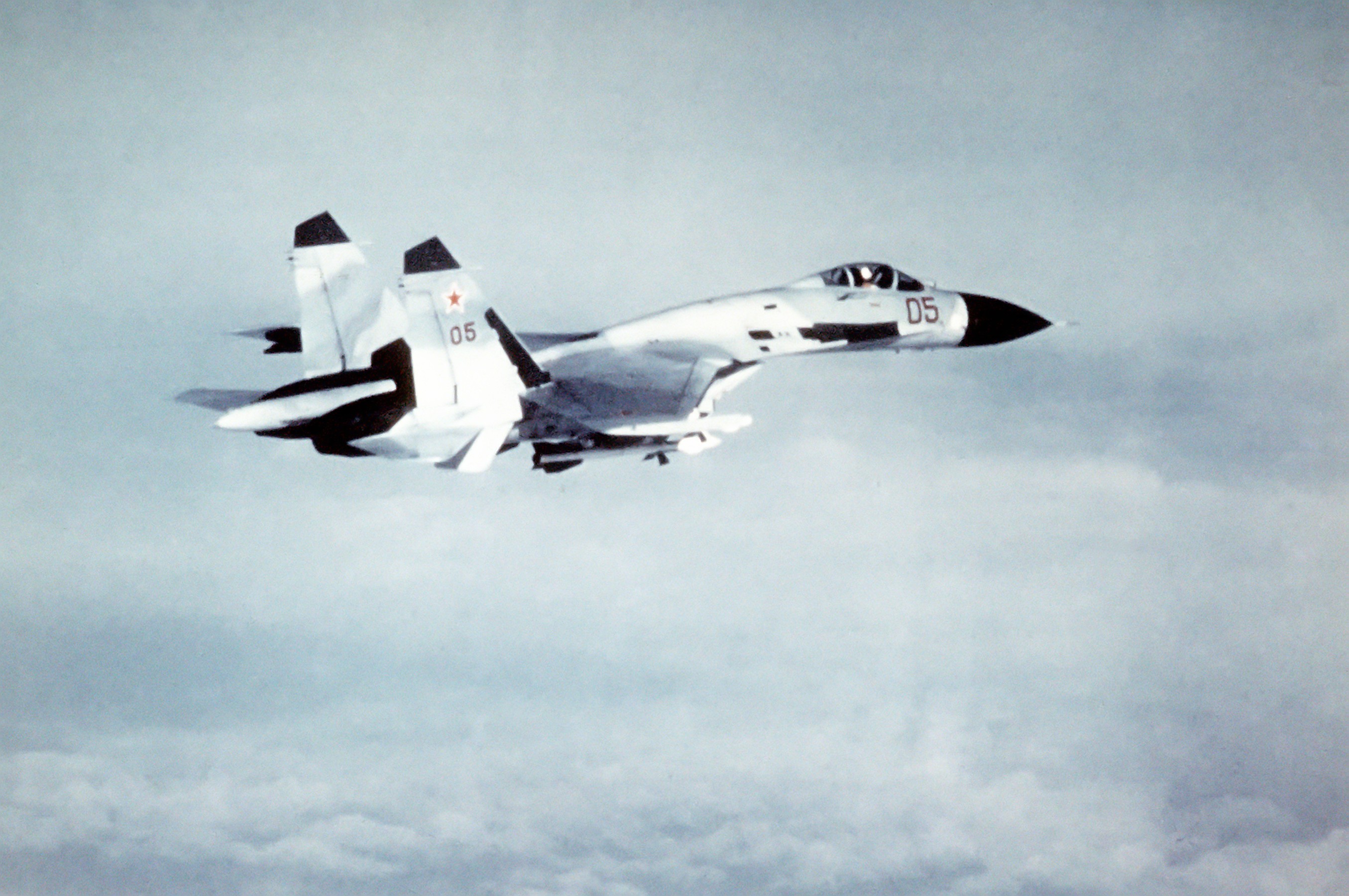
This story has been updated to add comments from Pentagon Press Secretary Brig. Gen. Pat Ryder and Marine Corps Commandant Gen. David Berger, as well as information on recovery efforts.
The Pentagon is not yet saying whether the U.S. will try to recover an unmanned MQ-9 Reaper aircraft that ditched into international waters Tuesday after a Russian Su-27 aircraft collided with it midair over the Black Sea.
The Russian Su-27 was one of two Russian fighters that intercepted the MQ-9 in what U.S. European Command is calling an “unsafe and unprofessional” fashion, according to a Tuesday release.
At 7:30 a.m. CET, one of the Russian planes hit the MQ-9’s propeller, according to EUCOM. U.S. forces then opted to bring the unmanned aerial vehicle down in international waters, although the release does not specify if those waters were the Black Sea.

The release does not say if the U.S. will try to recover the MQ-9. The U.S. is not allowed to send warships into the Black Sea, as Turkey closed the Bosphorus Strait as a result of the current Russo-Ukrainian War.
A Navy spokesman did not have any additional information if there were plans to recover the downed Reaper when contacted by USNI News on Tuesday.
In 2018, the Navy assisted with the recovery of an RQ-4 Global Hawk high-altitude surveillance drone off the coast of Spain with fleet oiler USNS Arctic (T-AOE-8), USNI News reported at the time.
However, shortly after the invasion of Ukraine by Russian forces, the government of Turkey closed off the Bosphorus and Dardanelles straits to warships from any country, whether or not they border the Black Sea, raising questions if a Navy salvage ship would be permitted to recover the aircraft.
Those restrictions might not apply to a commercial ship with a recovery team aboard, said Sal Mercogliano, chair of Campbell University’s Department of History, Criminal Justice and Politics and a merchant mariner told USNI News on Tuesday.
“What I assume they’ll do is charter something and take it to the Black Sea or charter something in the Black Sea,” he said. “As long as its non-military they don’t seem to have any issues.”
NATO member Romania is a Black Sea nation and the Navy has taken on sailors and equipment while operating in the region in the past.
Pentagon Press Secretary Brig. Gen. Pat Ryder did not have any comments on potential recovery missions or where the aircraft fell. To his knowledge, Russia has not recovered the UAV, Ryder said.
Secretary of Defense Lloyd Austin has not reached out to his Russian counterpart, although the State Department is contacting the Russian government, Ryder told reporters during a Tuesday briefing.
Ryder would also not provide additional details about the MQ-9 except that it is an intelligence, surveillance and reconnaissance platform.
Intercepts are not uncommon, Ryder said, but the Russian pilots behavior is. In addition to striking the MQ-9, the Russian aircraft dumped fuel on the UAV and flew in “a reckless, environmentally unsound and unprofessional manner” in front of the MQ-9, according to the release.
“Our MQ-9 aircraft was conducting routine operations in international
airspace when it was intercepted and hit by a Russian aircraft, resulting in
a crash and complete loss of the MQ-9,” U.S. Air Force Gen. James B.
Hecker, commander, U.S. Air Forces Europe and Air Forces Africa, said in the release. “In fact,
this unsafe and unprofessional act by the Russians nearly caused both
aircraft to crash.”
The recent Russian actions are part of a larger pattern of Russian pilots that have interacted dangerously with U.S. and allied aircraft, according to the EUCOM release.
“These aggressive actions by Russian aircrew are dangerous and could lead to miscalculation and unintended escalation,” reads the release.
Since late 2021, the U.S. has positioned an aircraft carrier in the nearby Mediterranean and stepped up flights along NATO’s eastern flank along with U.S. Air Force and allied aircraft. That includes unmanned flights over the Black Sea.
“These aircraft had been flying over the Black Sea region for some time to include before the current conflict started,” Ryder said. “It is an important and busy international waterway. And so it is not an uncommon mission for us to be flying in international airspace.”
The downing of the MQ-9 follows at least two of the same type of drones getting shot down over Syria, Bryan Clark, an analyst with the Hudson Institute told USNI News on Tuesday.
“The practice of the U.S. has been not to retaliate against attacks against UAVs,” he said.
In terms of salvage, “the law is fuzzy on this,” he said.
“If it has no human operator and in international waters or airspace, you can argue that it’s salvage.”
These types of early morning incidents worry Marine Corps Commandant Gen. David Berger, he told reporters at a National Press Club lunch Tuesday. The Russian hit on the UAV happened around 2:30 a.m. EST.
“Both there and in the Pacific if an aggressive Russia or China pilot or vessel captain or something gets too close, doesn’t realize where they are, causes a collision,” Berger said. “And it’s two in the morning, and we’re trying to unpack this as fast as we can. I really worry about that. In other words, either intentionally or unintentionally things bumping into each other, causing a collision, and then two great nations, powerful nations trying to sort it out at two in the morning.”
It can be more difficult if the lines of communication between the two countries are not strong, Berger said.
“So I worry that something will happen at two in the morning,” he said. “And we can’t talk to our counterpart to say what the heck was that about? So I worry, I do.”





